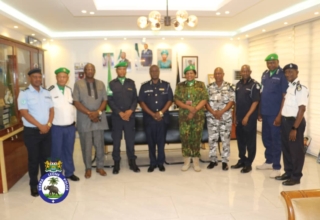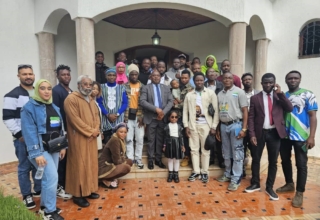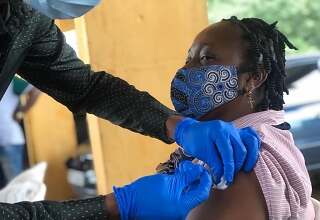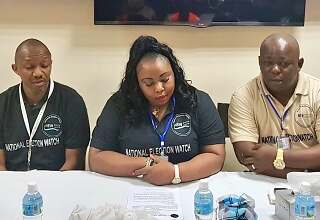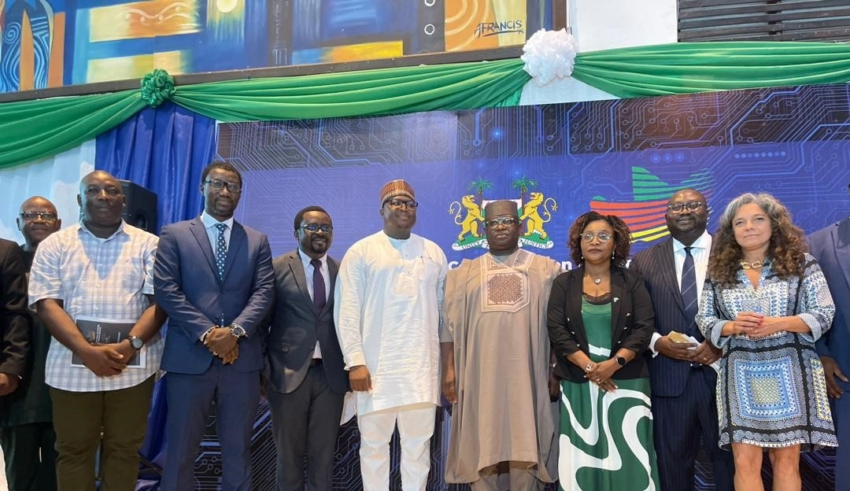
The Economic Community of West African States (ECOWAS) has on Thursday 18th April, 2024 signed a Communique on the urgent negotiation of a legally binding instrument to regulate autonomous weapons in accordance with International law and ethical principles.
At the end of a two-day Regional Conference on the Peace and Security Aspects of Autonomous Weapons Systems in Freetown, representatives of ECOWAS Member States recognized that the autonomy of weapons systems raises serious ethical, humanitarian, legal, peace and security concerns.
“We, representatives of ECOWAS Member States gathered for a Regional Conference on the Peace and Security Aspect of Autonomous Weapons Systems in Freetown, Sierra Leone, on 17-18 April 2024.
Based on our discussions during the conference, hereby issue the following communiqué”
“Recognizing the significant regional and global security and geopolitical implications of emerging technologies.
Recognizing further that these technologies and artificial intelligence (AI), if equitably developed and shared, have the potential to support economic growth and enhance the quality of human lives.
Cognizant that without equitable development such technologies may reinforce existing social, political and economic inequalities, and may foster prejudice, distrust and digital dehumanization. Concerned that autonomy of weapons systems raises serious ethical, humanitarian, legal, and peace and security concerns, including concerns about the potential use of autonomous weapons systems as deadly force against targets without the meaningful human control that is critical for upholding ethical, legal and humanitarian obligations. Conscious of the history and current context of our region, in relation to the issues of armed conflict, terrorism and internal disturbances that have been exacerbated by the inadequate international regulation of arms traffic and weapons systems”.
The Communique expressed concern that autonomous weapons systems may become increasingly easy to replicate and easily fungible, and thereby become the object of trade and transfer, including for use by transnational criminal networks, terrorists, and other non-state armed groups.
It further took into cognizance the proliferation of such weapons in the absence of specific international regulation, will generate additional threats to national, regional, and global peace and security, including the risks of arms race and of conflict escalation, and will undermine regional efforts to build peace through economic and political integration.
They therefore called for the strengthening of existing governance mechanisms, including international humanitarian law, international human rights law, and international criminal law, by establishing new legally binding rules, with prohibitions and regulations that effectively address the threats and challenges posed by autonomous weapons systems.
“Recognizing the valuable work and contributions of the United Nations entities, other international organisations, civil society, academia, industry and other stakeholders in discussions on autonomous weapons systems. Acknowledging further the contributions on this issue from international and regional conferences hosted by various states; and noting the Belén Communiqué of the Latin American and the Caribbean Conference on the Social and Humanitarian impact of Autonomous Weapons (Belén, Costa Rica) and the CARICOM Declaration on Autonomous Weapons (Port of Spain, Trinidad and Tobago)”.
The deliberation also focused on the first United Nations General Assembly resolution on lethal autonomous weapons system, in 2023 which mandated the United Nations Secretary-General to seek the views of states and stakeholders on addressing the legal, ethical, humanitarian, technological and security risks of autonomous weapons systems.
That was followed by a clarion call from the UN Secretary-General for states to finalize negotiations on a legally binding instrument to prohibit lethal autonomous weapons systems that function without human control or oversight, and which cannot be used in compliance with international humanitarian law, and to regulate all other types of autonomous weapons systems.
Resolution 473 (2021) of The African Commission on Human and Peoples’ Rights drew attention to the need for meaningful human control over autonomy in weapons systems and to uphold and protect human dignity in the use of AI technologies, robotics and other new and emerging technologies.
This was also supported by a statement in 2021 from the United Nations Group of Governmental Experts on Lethal Autonomous Weapon Systems by the African Group of States on Disarmament that called for a new legally binding instrument with prohibitions and regulations to ensure meaningful human control.
Representatives from ECOWAS Member States committed to support the urgent negotiation of a legally binding instrument to regulate autonomous weapons systems, with specific prohibitions and regulations, in accordance with international law, including international humanitarian law and international human rights law, and ethical principles.
This was in line with the principles of ECOWAS in strengthening regional cooperation and partnership and, through inclusive and participatory approaches, advancing common positions on autonomous weapon systems that contribute to the broader global effort towards the establishment of a new legally binding instrument.
@MFAIC Media Unit

